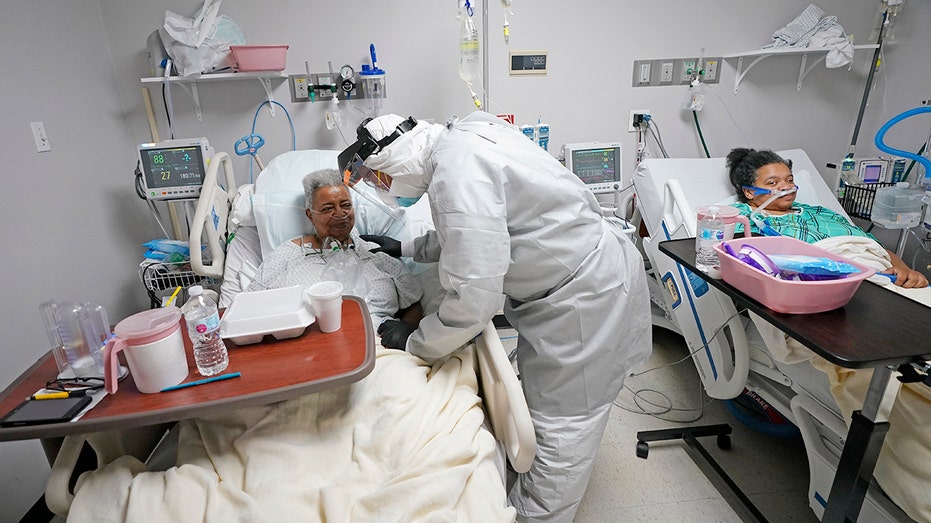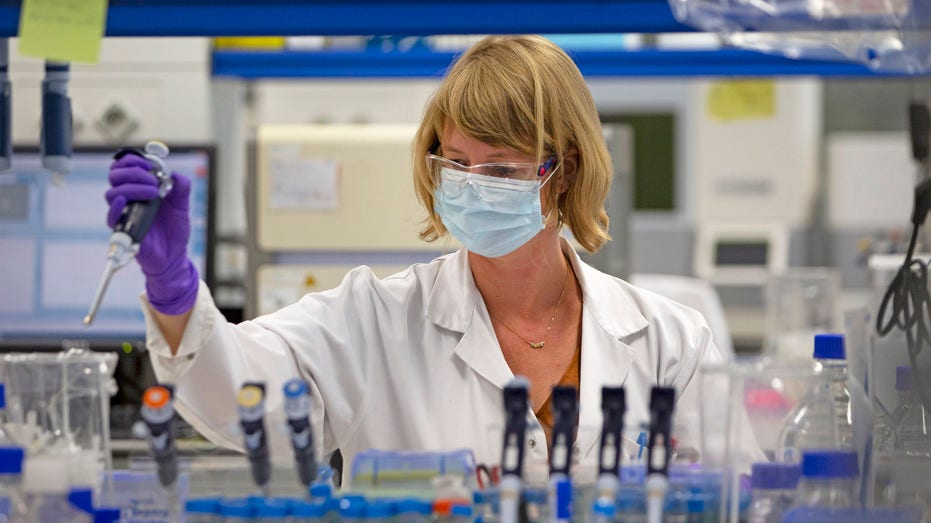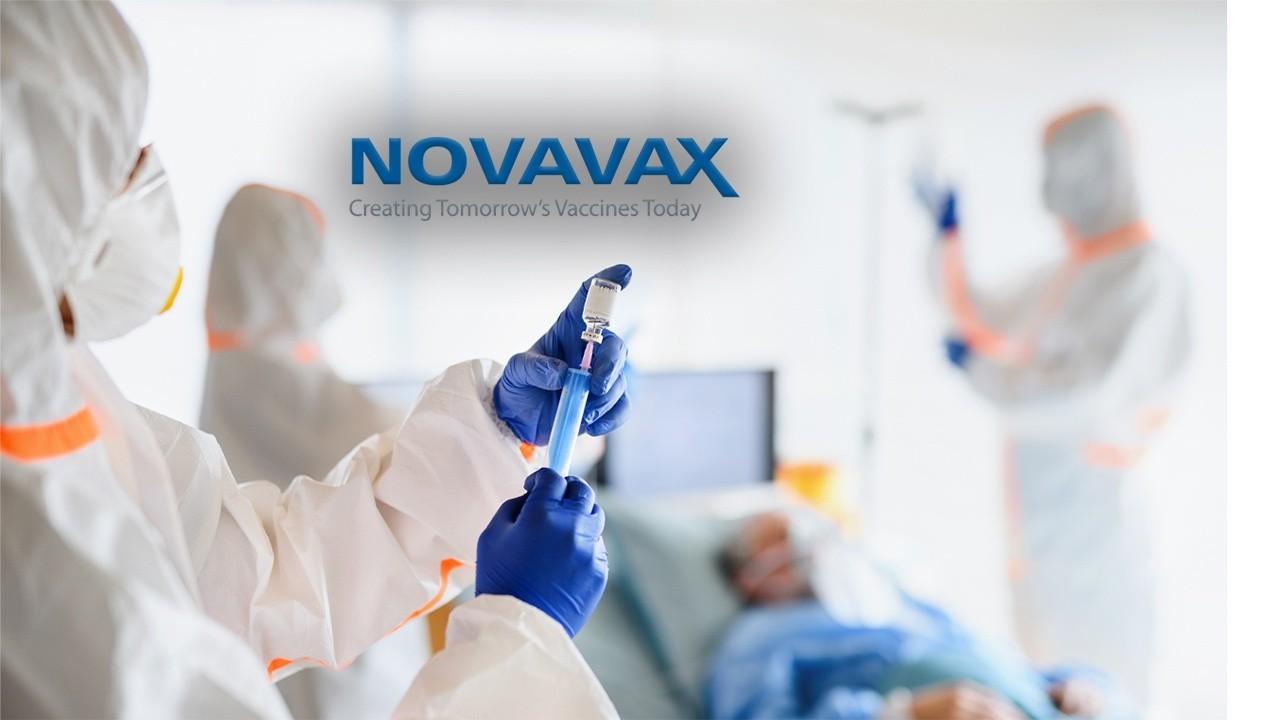Hospitals stock up on COVID-19 drugs to prepare for second wave in fall
Demand for many drugs commonly used by hospitals shot up in April
Hospitals across the country are stocking up on drugs for treating Covid-19, hoping to avoid another scramble for critical medications should a second wave of the virus threaten new drug shortages.
Hospitals in New York, New Jersey and other areas that faced high numbers of Covid-19 patients earlier this year, bought and used large amounts of drugs, including painkillers and sedatives for the sickest patients on mechanical ventilators. Those buys siphoned medicines already in short supply from the market, with the result that some preferred drugs became unavailable, or hospitals had to turn to alternatives.
CORONAVIRUS JOB CRISIS CAUSES HISTORIC LOSS OF HEALTH INSURANCE
Many of those ICU drugs remain in short supply, even as coronavirus hot spots flare up in places like Florida, Texas and California, and hospitals compete for limited resources. Meanwhile, many hospitals elsewhere are looking ahead to secure supplies of other medications that have recently been found effective for some patients, including the generic steroid dexamethasone and the antiviral remdesivir.

Dr. Joseph Varon, center, visits with Dorothy Webb, left, and her daughter, Tammie, while making his rounds inside the Coronavirus Unit at United Memorial Medical Center, Monday, July 6, 2020, in Houston. (AP Photo/David J. Phillip)
“Now it’s like, what are we going to do going forward in the future?” said Indu Lew, chief pharmacy officer at RWJBarnabas Health, which operates 11 acute-care hospitals in New Jersey. “When we look at a surge, we don’t know when it’s going to happen, we don’t know what factors are going to cause it to happen, and we don’t know what our volume will be.”
Demand for many drugs commonly used by hospitals shot up in April.
UNEMPLOYMENT IS RECOVERING FASTEST FROM CORONAVIRUS LOCKDOWN IN THESE STATES
Hospitals’ purchases of sedatives and analgesics increased nearly fourfold in April versus January, according to Vizient Inc., which buys medications on behalf of hospitals. As demand exceeded supply, only about half of hospital orders were filled in April, compared with nearly all such orders in January.
Doctors also used higher doses for Covid-19 patients than for ordinary surgeries and procedures, further straining the system, hospital officials said. To replenish quickly, hospitals sometimes bought directly from drugmakers instead of from wholesalers—potentially leading to higher costs.
Now, hospitals are preparing for a possible surge in the fall, although the size is unknown.
About 90% of hospitals and health systems are building safety stocks of about 20 critical medications, according to Premier Inc., one of the nation’s largest group-purchasing organizations. Premier says more than half are trying to build at least one month’s supply of medications, including those for patients on mechanical ventilation.
Such drugs, including sedatives like propofol and painkillers like fentanyl, are a priority, hospital officials said in interviews, even as some of them remain on allocation, meaning they aren’t immediately delivered in full because of tight supply. The U.S. government has made it easier for some controlled substances, like painkillers for Covid-19 related treatment, to be shipped.
Hospital officials concede they might not need the drugs if a second wave doesn’t materialize.
And as providers have become more experienced at treating Covid-19, revising treatment guidelines to reflect new research, they are in some cases relying less on ventilators, reducing the need for related medications.
Drugmakers, meanwhile, have ramped up production, and wholesalers have expanded caps on how much hospitals may order, according to industry officials.
Still, RWJBarnabas Health is trying to secure a two-week supply of propofol and ventilator medications at the level used during the height of its patient surge, or 70% higher than normal, Ms. Lew said. And it is building a cold-storage room for some ICU medicines at its warehouse. RWJBarnabas Health cared for more than 1,700 individuals for Covid-19 related reasons at its peak on April 13.

A lab technician works during research on coronavirus, COVID-19, at Johnson & Johnson subsidiary Janssen Pharmaceutical in Beerse, Belgium, Wednesday, June 17, 2020. (AP Photo/Virginia Mayo)
“If we had a week’s supply a few months ago, I wouldn’t have as much gray hair as I have right now,” Ms. Lew said. “We were operating in a 24- to 48-hour capacity of meds.”
One of the most-sought medications is cisatracurium, a generic muscle-relaxant given to ventilated patients, bought by hospitals at rates 45 times higher than normal, said Paula Gurz, senior director of pharmacy contracting at Premier. The medication is listed as in shortage by the Food and Drug Administration.
“Everybody is working to recover supply on that one,” Ms. Gurz said. “It sold out very quickly during Covid.”
Also in demand are common medications shown to be effective for Covid-19. University Hospitals, a Cleveland-based health system, is ordering more blood thinners, such as heparin, which are helpful in reducing Covid-19 complications, said Shawn Osborne, who oversees pharmacy and supply-chain services. Heparin supply has been challenged in recent years.
Mr. Osborne said he also has ordered more dexamethasone, which wasn’t a major treatment during the first wave. Researchers last month found the steroid to be effective in treating the sickest patients, and it is now part of the hospital’s treatment protocol.
Mr. Osborne wants a three-week supply of medications, including three dozen ICU drugs and common medications like acetaminophen. Certain dose amounts of the sedative midazolam were unavailable earlier this year, forcing him to purchase alternatives, he said.
“We’re taking wave two seriously, knowing we’re not coming from nearly the challenging position that we were in with wave one, where everybody got caught off guard,” Mr. Osborne said.
CLICK HERE TO READ MORE ON FOX BUSINESS
New York’s Northwell Health, a 23-hospital system on Long Island, treated more than 3,400 Covid-19 patients in early April. Officials there are calculating future needs of dexamethasone or remdesivir by looking at how much they would have used had those drugs been part of treatment protocols months ago, said Onisis Stefas, Northwell’s chief pharmacy officer.
Many hospitals have been rationing remdesivir, made by Gilead Sciences Inc. Federal and state officials are for now deciding which hospitals get the drug, which has emergency-use authorization.
CLICK HERE TO GET FOX BUSINESS ON THE GO
One challenge isn’t only how hospitals are competing for limited drug supply, but also how the needs shift as the virus spreads, said Stephen Schondelmeyer, a professor of pharmaceutical economics at the University of Minnesota.
“A lot of what happens will depend on the patterns of the Covid rollout,” he said. “Each manufacturer, each wholesaler and each hospital can hoard as much as they want until it runs out, and then the people who are late to the table don’t have the drug.”




















